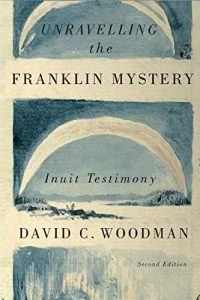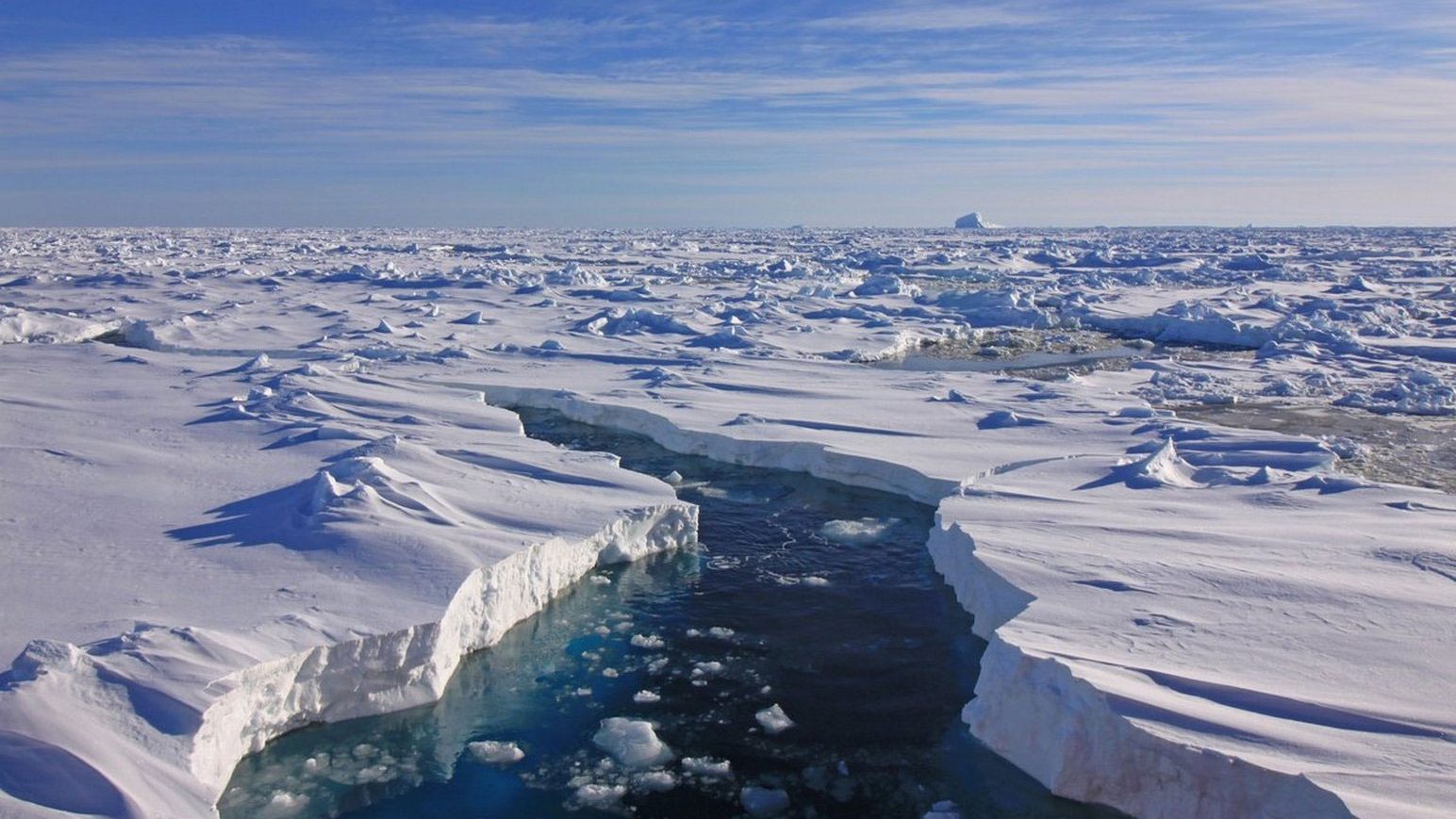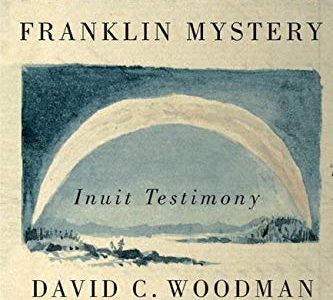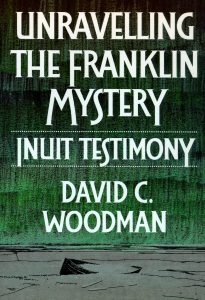 A classic reconstruction of the mysterious events surrounding the tragic Franklin expedition has taken on new importance in light of the recent discovery of the HMS Erebus wreck, the ship Sir John Franklin sailed on during his doomed 1845 quest to find the Northwest Passage to Asia.
A classic reconstruction of the mysterious events surrounding the tragic Franklin expedition has taken on new importance in light of the recent discovery of the HMS Erebus wreck, the ship Sir John Franklin sailed on during his doomed 1845 quest to find the Northwest Passage to Asia.
First published in 1991, Unravelling the Franklin Mystery boldly challenged standard interpretations and offered a new and compelling alternative. Among the many who have tried to discover the truth behind the Franklin disaster, Woodman was the first to recognize the profound importance of Inuit oral testimony and to analyze it in depth. From his investigations, Woodman concluded that the Inuit likely visited Franklin’s ships while the crew was still on board and that there were some Inuit who actually saw the sinking of one of the ships. Much of the Inuit testimony presented here had never before been published, and it provided Woodman with the pivotal clue in his reconstruction of the puzzle of the Franklin disaster. Unravelling the Franklin Mystery is a compelling and impressive inquiry into a part of Canadian history that for one hundred and seventy years left many questions unanswered. In this edition, a new preface by the author addresses the recent discovery and reviews the work done in the intervening years on various aspects of the Franklin story, by Woodman and others, as it applies to the book’s initial premise of the book that Inuit testimony holds the key to unlocking the mystery.
ISBN 9780773545410, 424 Pages
Published by McGill-Queens University Press.
First Edition (bottom) released July, 1991
Second edition (top) released March, 2015.
Peer Reviews
HOUSTON – … the most complete study of John Franklin’s fatal third voyage that I have seen … this will now be the definitive work on the topic, a brilliant synthesis … The time is ripe for a fresh, new, original book about John Franklin. This is it. … This is a definitive, comprehensive, detailed, well-written account, a remarkable compilation and synthesis … It unfolds slowly like a good detective story. Some chapters are masterpieces.
C. Stuart Houston, Author, To the Arctic by Canoe
Published Reviews – First Edition (1991)
MOORE – David Woodman has autopsied no corpses and unearthed no lost cairns. He has just done what historians should do: he has gone to the sources and paid attention to them. From that deceptively simple (and never to be sufficiently praised) strategy, he has come up with a Franklin story at least as convincing as the standard version … after Woodman, attention to Inuit sources must surely become basic to all discussion of Franklin … this book is compelling reading. On a warm week at an Ontario lakefront cottage, I sat inside turning unwieldy page proofs … and could not stop.
Christopher Moore, Books in Canada, v.20 (8), November 1991, p. 46-7 Toronto Star, 9 November 1991, p. F12
MOSS – [an] eccentric, obsessive, enthralling narrative … There are few people who will have the expertise to evaluate this book, yet most readers drawn by the title will appreciate it immensely.
John Moss, Arctic Circle, v. 2 (4) Jan/Feb. 1992, p. 41
DECARIE – a sophisticated analysis … a fascinating book but, though well-written, it is not an easy read … But Unravelling the Franklin Mystery is worth the challenge. Settle down for a careful reading with several good maps that you don’t mind writing on to trace possible routes, and several sheets of paper to construct charts of the evidence. To get the most out of this book, don’t treat it as a read. Treat it as an adventure in detection to be shared with the author. It’s well worth the effort.
Graeme Decarie, Matrix, (37) Summer 1992, p. 52
MORTON – Even if you have read a shelf-full of books about the last Franklin expedition, you should read this one. If you have never read any at all, this is an excellent book to start with – comprehensive, fair-minded and so gripping that you will stay up late to finish it. Yet to say that this is a marvellous book … is only to begin to praise it … one is sometimes puzzled as to which to admire more – Woodman’s mental agility or his capacity for work.
Ann Morton, Winnipeg, Manitoba
Read Full Review (PDF, Page 54 of 65)
PRITCHARD – a significant contribution … a splendid study whose substance is presented in a stimulating and challenging manner … his book will be “must” reading for all those fascinated by the story of Arctic exploration.
James Pritchard, Canadian Book Review Annual Online
GRAHAM – carries the reader along briskly … comprehensive … Woodman’s use of Inuit oral traditions for the bulk of his evidence should ensure that his “case” will be able to compete quite easily.
Amanda Graham, Northern Reviews (8/9) Summer 1992, p. 209-212
FOSSETT – three cheers for David Woodman … His re-examination … has made sense out of a mass of evidence which earlier researchers neglected or discarded … Woodman has produced a work that is a valuable methodological guide for historians as well as an exciting and sympathetic retelling of an old story … the most comprehensive, cohesive, and satisfying account of the matter to date … As narrative it is beautifully written, maintains a rapid pace, and at every step serves to clarify events. The author handles his personae with sympathy and warm humanity … His characters, dead for a century and a half, are nevertheless alive and real in the pages of the book. It will quickly catch and hold the imagination of the general reader … As a treatise on the methodologies of oral history, it will fascinate historians, anthropologists, and folklorists, among other professionals, for its exemplary nature.
Renee Fossett, Manitoba History, 25, Spring, 1993. P. 44-5
FOSSETT (2) – Woodman undertakes to examine the riddle one more time, but he produces no mere summary or réitération of past works. In revising the usual reconstructions, Woodman rejects the main éléments of the standard narrative … his approach to the evidence that makes the book stand out from its predecessors. Europeans have tended to ignore or undervalue the testimony of Inuit eyewitnesses and secondary witnesses for a century and a half. Woodman chooses to reconstruct events in the central Canadian arctic during the years 1845-51 using aboriginal accounts … Close and meticulous analysis of the mass of Inuit testimony has allowed Woodman to flesh out the frame work. The resuit is the most comprehensive, cohesive, and satisfying account of the matter to date.
Renee Fossett, University of Manitoba, Ethnologies, 1993Volume 15, Number 1, 1993
WHYTE – Truth, evidence, observation, validation and testimony- these are the themes which dominate this book. Although he relies for the most part on the scholarship and experiences of others, David Woodman has contributed a unique study among the legion of works devoted to the Franklin misadventure. … It offers a fresh interpretation of the mystery of the fate of the vessels and crew … He has interwoven an interesting blend of fact, supposition, testimony, and speculation into a potent argument as to the probable outcome of the Franklin expedition. Woodman has alerted all those interested in aspects of northern studies to the dangers of cultural bias and reminds us to re-evaluate any evidence based on truth rather than interpretation.
Doug Whyte. Archivaria (33) Winter 1991/1992, p. 238-40
DAVIS – Our ways of thinking about history, literature, and anthropology have changed dramatically in recent years, and David C. Woodman’s Unravelling the Franklin Mystery: Inuit Testimony is one of the many new fruits borne of this shift in thinking.
Richard Davis, Arctic, v. 45 (3), September 1992, p 314-5
Published Reviews – Second Edition (2014)
POTTER – It’s the single most significant book in the history of the search for Sir John Franklin’s long-lost ships and men, one without which, arguably, Parks Canada’s 2014 discovery of HMS “Erebus” would never have been possible.
Potter – Arctic Book Review, Saturday, March 7, 2015
MACDONALD – One of the author’s strengths is that as a mariner he has an understanding of the sea and its behaviour … Except for the new preface, the text, footnotes, appendices and bibliography are the same as the 1991 original. This preface indicates searches since then, including the author’s, and underlines the discovery of The Erebus in 2014 as a tribute to the testimony of the Inuit. His emphasis in the book, on the importance of that testimony, leads to the view ‘the history of the exploration of Canada’s Arctic is not solely a narrative of European voyages, but of the Inuit people who interacted with them.
Robert MacDonald, Arctic Institute of North America, University of Calgary. doi: 10.1017/S0032247415001023
Public Reviews
![]()
Amazon Public Reviews (First Edition)



